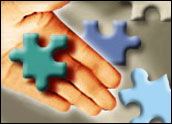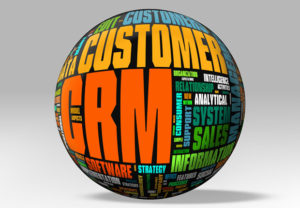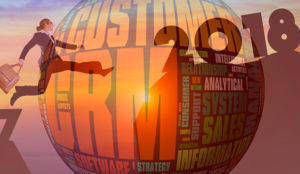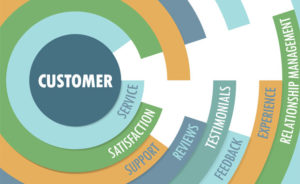
The jargon of an industry is a good indicator of where the mindset of that industry is at any particular moment. Think of terms like “the cloud,” which are set upon by marketers and subverted to their ends until the meaning has been wrung from them.
For many in IT, the cloud is a place that solves many of their routine problems, sight unseen, and it helps relieve them from constant attention from the CFO (at least until a cost analysis is performed). Clearly, IT is under pressure and being asked to do more; the idea of exporting IT functions is a lifesaver for IT managers in a trying time.
CRM is a great place to watch the ebb and flow of similar terms, and how they correspond to the mindset of the people using the technology. Currently, there are two terms that come up over and over which are both complimentary and at odds with each other: “Customer experience” and “big data.” Both add value to the conversation, but both also threaten to misdirect CRM users who aren’t sure of their importance in the context of their businesses.
Keep the Focus on Customers
Customer experience is used generically, but it generally describes the customer’s perception of the interaction between him or her and the seller, across all moments of contact in the relationship. It’s a very big set of events, spanning all three legs of CRM (sales, marketing and customer service).
Because it involves an understanding of every connection the customer has with a business, it can prove challenging — tracking customer experience in a comprehensive way means that every employee can record data about the customer’s interactions with the company.
It’s easy for this to break down. For example, a bad experience with a field service person might be the event that drives the customer to a competitor, but who’d be charged with reporting that event? Probably the field service person with whom the customer had a problem.
The concept of total adoption of the system is the ideal in CRM, but there have been many cases where a true view of the data suffered because a sales rep opted not to report bad news about his or her performance. The same is even more true in the attempt to truly understand customer experience.
The effort is being made, however, and that’s a good thing. I think the urgency around customer experience comes from the realization that data on its own is not enough; it needs to correspond to an action that has been or can be taken to make a customer more loyal, more profitable or more likely to spread good news about your company.
Focusing on the experience indicated by the data, rather than on the data itself, is much more likely to earn the relationships your business hopes to gain.
The Big Data Conundrum
That brings us to the other popular buzzword of the day: big data. The focus on this is really nothing new; back when we used punch cards in our computers, that stack of cards was seen as a daunting amount of data.
However, in the present we’re becoming more adept at generating data, capturing it and analyzing it. The “size” of the data is not the thing; the velocity and the variety is what sets it apart today.
Seeing that opportunity is important. Again, though, as with customer experience, unless you can connect the dots between data and the real-world application of that data, you’re missing out on the business value.
Too many people I talk to are in love with the amount of data, or the variety of the data, or the speed at which they accrue it. What they need to focus on is their ability to segment the data and analyze it for things that are important to their businesses.
The big data era opens new opportunities for creativity in how the data is used, and how different slices of data can be correlated to find new insight. That data, however, needs to be applied in order for it to do you any good.
Real People, Not Data Points
The other pitfall of falling in love with big data is that it starts to abstract you from your customers. The people who buy from you are not the data points that spring from their interactions with you, your marketing or your support teams. They are also not the data you glean from social media. They’re much more complex than that — and you can scale your understanding of that complexity only so far through automated means.
Analysis of data is really the first step that reveals where you should go with your efforts to personalize your relationships with customers, and the proof point of how successful you’ve been in doing that. It’s not a substitute for the customer thinking you’ve always done, or the presence of great customer-facing people in your organization.
Relationship is always at the heart of all these efforts. The experience you create for the customer is not the relationship, nor is the data generated by your customers through their interactions with you.
The desire to create better customer relationships is the underlying need that’s taken us from the beginnings of CRM to the point where we can talk about customer experience management and big data.
But without the focus on relationships, none of this technology will help you survive long-term.

























































Social CRM
See all Social CRM